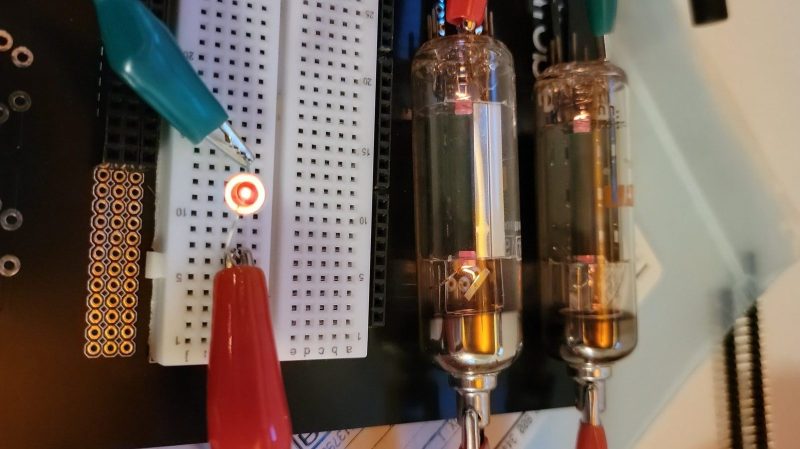Hackaday Prize 2022: Glass Tube Solar Thermionic Converters

Typically, if you want to convert solar energy into electrical energy, you use either photovoltaic (PV) cells, or you use the sunlight to create steam to turn a turbine. Both of these methods are well-established and used regularly in both small- and grid-scale applications. However, [Nick Poole] wanted to investigate an alternative method, using thermionic converters for solar power generation.
[Nick] has been gearing up to produce various styles of vacuum tubes, and noted that the thermionic effect that makes them work could also be used to generate electricity. They are highly inefficient and produce far less power than a photovoltaic solar cell, meaning they’re not in common use. However, as [Nick] notes, unlike PV cells etched in silicon, a thermionic converter can be built with basic glassworking tools, requiring little more than a torch, a vacuum pump, and a spot welder.
Experiments with a large lens to focus sunlight onto a 6V3A diode tube showed promise. [Nick] was able to generate half a volt, albeit at a tiny current, with the design not being optimized for thermionic conversion. Further experiments involved electrically heating a pair of diode tubes, which was able to just barely light an LED at 1.7 V and a current of 7.5 uA. The conversion efficiency was a lowly 0.00012%, around 5 orders of magnitude worse than a typical PV cell.
[Nick]’s hope is that he can produce a tube designed specifically to maximize thermionic conversion for energy generation purposes. It’s likely there is some low-hanging fruit in terms of gains to be made simply by optimizing the design for this purpose, even if the technique can’t compete with other solar generation methods.
In any case, we’re eager to see what [Nick] comes up with! We love to see makers building tubes in their own home workshops.
from Blog – Hackaday https://ift.tt/XxQIeT5


Comments
Post a Comment